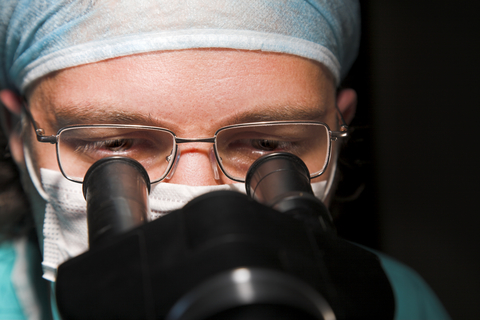The potentially deadly side effects of coronavirus Welsh doctors are urgently investigating

Researchers at Morriston Hospital in Swansea are aiming to find out why coronavirus can cause blood clots with potentially life threatening complications.
WalesOnline reports a team based at the Welsh Centre for Emergency Medicine Research has secured £130,000 funding, including a grant from the Welsh Government, to investigate one of the most devastating consequences of Covid-19.
The virus is known to trigger the formation of blood clots that can lead to damage in the brain, lung, and other organs which then cause life threatening complications such as stroke.
It isn’t yet known why this happens and the multidisciplinary team of clinical and non-clinical scientists will investigate the causes should there be an upsurge in cases in the coming months.
Based in Morriston Hospital ’s emergency department, the team has been awarded a Welsh Government Sêr Cymru grant to carry out the unique research study in the event of a second wave of the virus later this year.
It will involve the use of new biomarkers which the team previously developed to screen patients at risk of thromboembolic disease such as stroke, sepsis and deep vein thrombosis.
All these diseases have an inflammatory component and the blood test can detect these abnormalities, helping with the diagnosis of the diseases, their progression and severity, as well as monitoring the effectiveness of treatment.
The same principles will underline the Covid-19 study, as the virus also has an inflammatory element to it.
This inflammation can lead to localised clotting in small blood vessels in organs such as the lung, brain, kidney and heart, especially in patients with a previous history of underlying vascular disease and chronic illness.
Professor Adrian Evans, founder and lead of the emergency medicine academic research programme at Morriston Hospital, said “Covid-19 can be an aggressive infective disease which has a marked inflammatory component, and which is known to have a major impact on the clotting system.
“We know that it enters through receptors in cells and the surface of blood vessels, triggering abnormal clot formation localised within the affected organ.
“In the lungs it decreases oxygenation, and that’s why patients are so short of oxygen. It also causes abnormal clots to form in the brain, kidney, heart and other organs.
“We know conventional tests can pick this up but they don’t tell us why, or the mechanisms behind it.
“Neither do they give us information on the nature of the abnormal clots’ structure and quality compared to healthy clots.
“We have developed new biomarkers on clot structure which we think will give us more insights into why these mechanisms occur, and how effective the current treatments are.”
The team hopes to gain a better understanding of how Covid-19 and its inflammatory response not only trigger abnormal coagulation, but also to ascertain how drugs such as dexamethasone and anticoagulants such as heparin affect the disease process.
Adrian Evans said “This is very much a mechanistic study which we hope will give us some idea of what treatment options may potentially be optimised in the future.”
His research team also includes clinical haemorheologist Dr Matthew Lawrence, consultants Dr Suresh Pillai, Dr Katy Guy and Dr Rangaswamy Mothukuri, and research assistant Jan Whitley. A research nurse will also be recruited.
The study is likely to involve upwards of forty patients and some preliminary work has already been carried out involving four patients who were admitted to Morriston Hospital with Covid-19.
Adrian Evan said “Ultimately we hope to get a better understanding of why these people develop abnormal clots, to look at what treatments are effective in preventing the clots, and to improve the healthcare of patients in the long term and save lives.”








